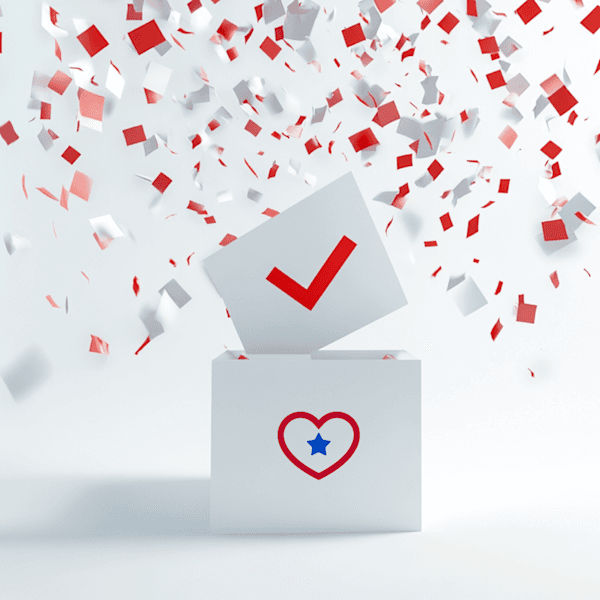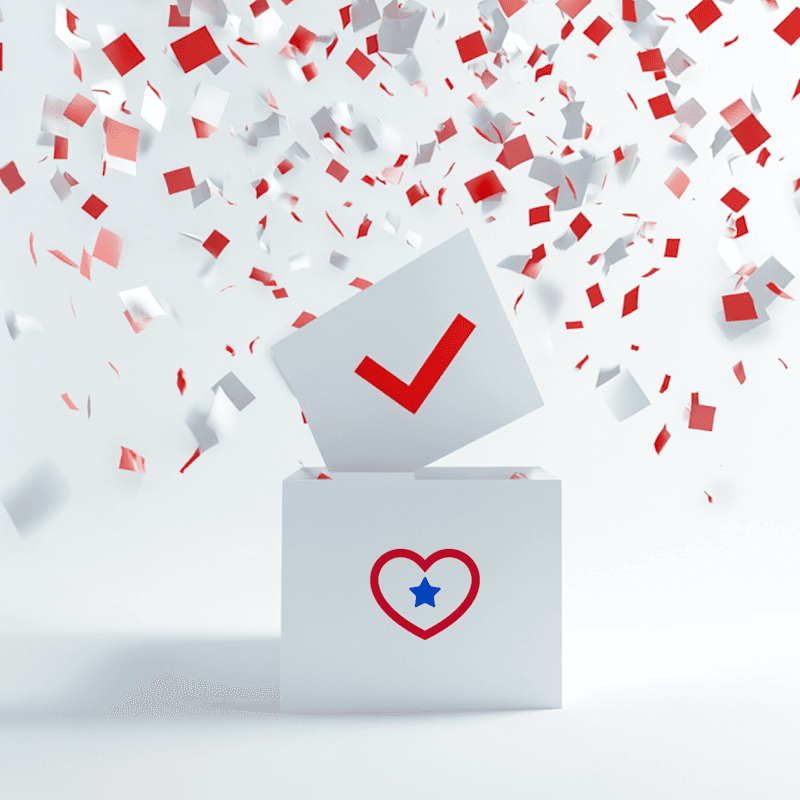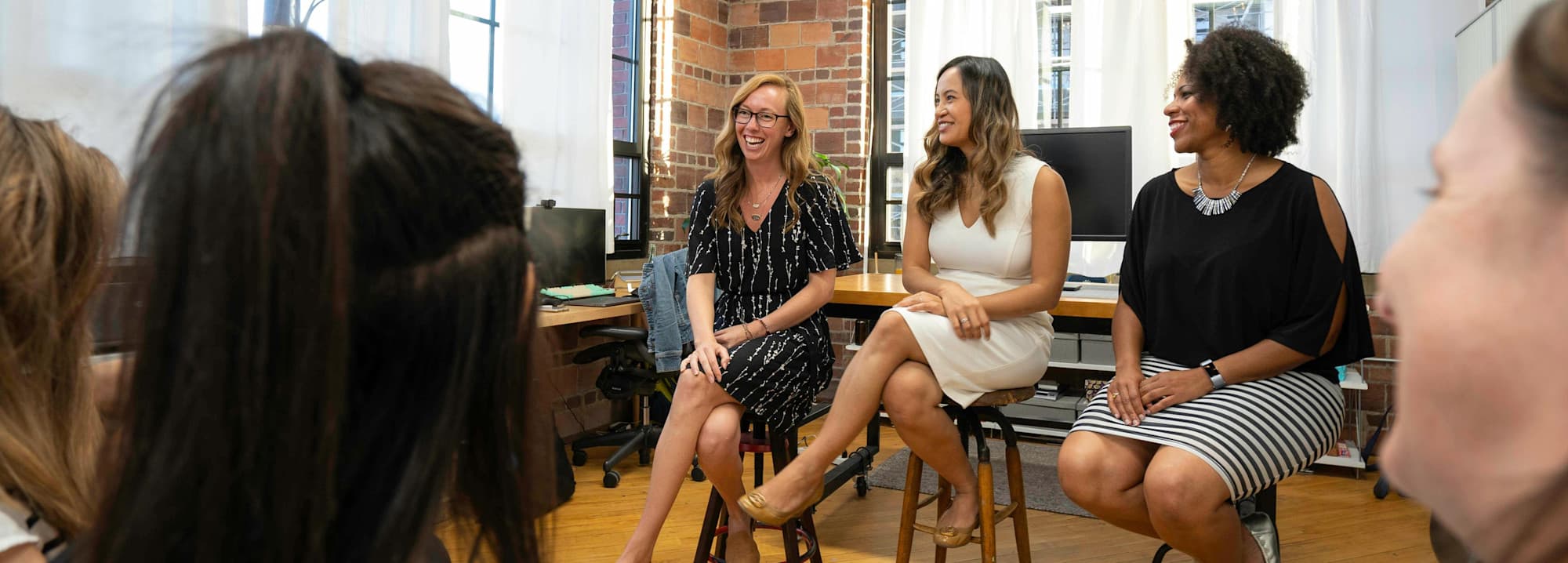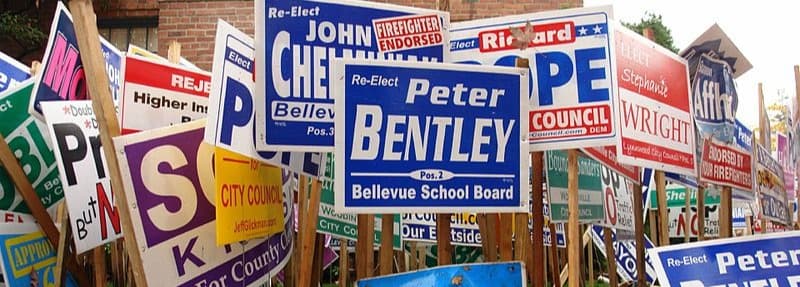
10 Tips to Prepare for Your First Candidate Debate
- Candidate Debates and Their Impact on Campaigns
- 10 Tips to Prepare for Your First Debate
- Free Resources for Debate Prep
Candidate debates can be pivotal moments on the campaign trail, both for federal and local candidates.
Since 1988, the Commission on Presidential Debates has organized presidential and vice-presidential debates. Prior to that, they were organized and hosted by the League of Women Voters in various locations around the country.
Whether with a full field of candidates before the primaries or among the final selections between the party conventions and election day, the purpose of these debates is to provide an opportunity for voters to see where the candidates stand on the issues and how they stack up against each other.
The purpose of candidate debates is the same for candidates running at the local, county, and state level. As a political candidate, your first debate can be a defining moment in your campaign. Mastering the ability to effectively communicate your platform and engage with the audience is crucial.
Read on as we discuss the importance of effective political debate and offer 10 strategic tips to help prepare you for this important event in your campaign.
Candidate Debates and Their Impact on Campaigns
Since the first televised debates, millions of Americans have tuned in to see how the candidates perform under pressure. Outside of the national debates, there are hundreds of matchups between candidates at the state and local levels throughout the country. These may attract substantially smaller audiences than national debates, but they are no less consequential for candidates.
Debates offer an opportunity for voters to evaluate future leaders based on:
Why the candidates think someone should vote for them
What kind of leadership style each candidate presents
How they act under pressure, especially during heated exchanges
Whether they share their constituents’ vision for the future of their community or country
Debates are critical milestones that can make or break a candidate’s campaign. In fact, it’s said that the 1960 presidential debate between John F. Kennedy and Richard Nixon — the first major general election debate and first-ever to be televised — was instrumental in Kennedy’s win.
For independent political candidates, these events offer a unique platform to present their ideas and distinguish themselves in a crowded field. A successful debate performance doesn’t just enhance a candidate’s visibility. It also solidifies their credibility and appeal among potential voters.
As such, careful preparation is more than beneficial — it’s essential. By mastering the art of debate, you can transform this challenge into a great opportunity to capture the public's imagination and earn their trust.
The Importance of Successful Debate Preparation
Debates are more than just a test of your knowledge on various issues. They showcase your ability to lead, persuade, and think critically under pressure. This opportunity for public examination plays a pivotal role in shaping voter perception and can significantly influence the trajectory of your campaign.
For independent candidates, who often face the challenge of limited media exposure compared to their party-backed counterparts, debates can level the playing field and serve as a crucial moment to connect directly with the electorate.
Successful debate preparation extends beyond familiarizing oneself with the topics at hand. It involves taking a holistic approach that includes understanding the mechanics of debate, refining your communication skills, and developing strategies to engage and persuade an audience.
Effective debate preparation empowers you to:
Communicate Clearly and Concisely: Conveying complex ideas in an understandable manner is vital. Debate preparation helps you distill intricate policies into clear, impactful messages that resonate with the audience.
Respond to Opposition with Confidence: Debates often involve exchanges that require quick, intelligent responses. Debate preparation arms you with the facts, knowledge and agile thinking necessary to counter criticisms and challenge opposing viewpoints effectively.
Present Your Vision: Beyond just defending your positions, you can use debates to articulate a compelling vision for the future that appeals to the hopes and values of voters.
Manage Stress and Anxiety: The intensity of a debate can be daunting. Through thorough preparation, you can manage your anxiety and ensure that you appear composed and self-assured. Remember that these are qualities that voters look for in leaders.
The rigor of debate preparation can be demanding, but the potential rewards are proportional to the effort you put into it. For a candidate who’s ready to step into the limelight for the first time, the right amount of debate preparation is key.
10 Tips to Prepare for Your First Debate
Add these steps to your debate prep for a successful and stress-free debate:
#1: Understand the Format and Rules
Before the debate, it’s essential to have a clear understanding of its format. Learn about the timing, the topics typically covered, and the moderator's role. This knowledge allows you to structure your responses and manage your time efficiently during the debate. Ensuring that you're not caught off guard by the format of the debate can significantly boost your confidence.
#2: Research and Prepare
Comprehensive preparation is the foundation of a successful performance. Invest time to thoroughly research the key issues at stake in the debate. Develop clear, concise positions on these topics. This preparation will enable you to respond confidently and pivot seamlessly between topics, showcasing your mastery of the issues and readiness to lead.
#3: Develop Your Key Messages
Identify 3-4 core messages that most resonate with your campaign’s vision. These should be potent, concise statements that encapsulate what you stand for. If you can come up with a good sound bite or inject your campaign mission into your message, all the better.
Remember, repetition is the key to connecting with voters and instilling your vision for the future into their minds. Weaving these messages consistently into your debate responses can reinforce your platform and make a lasting impact on the audience.
#4: Practice with Mock Debates
Organize mock debates, with members of your campaign staff or trusted advisors taking on the roles of your opponents and moderators. This rehearsal is vital for refining your messaging, improving your delivery, and alleviating any nervousness. Regular practice sessions can also help you adjust your strategy based on objective feedback.
#5: Master the Art of Rebuttal
Prepare to defend yourself against potential criticisms and attacks. Don’t get personal or hit back. Instead, formulate strong, respectful rebuttals to common arguments against your platform. Demonstrating your ability to think quickly and remain composed under pressure will enhance your image as a competent candidate and future leader.
#6: Work on Non-Verbal Communication
In an age when the camera is always on, even when it’s from an audience member’s smartphone, remember that non-verbal cues can be as impactful as verbal ones. Consider your posture, facial expressions, and general demeanor both while you’re speaking and while your opponent is making their point. Train yourself in effective body language, maintaining appropriate eye contact, and modulating your voice to convey your message powerfully.
Mastering these skills can significantly influence the audience’s perception of your confidence and sincerity. In addition to arranging mock debates, you should record video of your debate prep and practice sessions to get a clear view of how you present yourself and your ideas.
#7: Engage with the Audience
Plan to connect directly with the audience during the debate. Relate the discussion topics to their concerns and aspirations.
Barack Obama did this effectively during his first debate against John McCain, using repetition when discussing the economy:
"And you're wondering, how's it going to affect me? How's it going to affect my job? How's it going to affect my house? How's it going to affect my retirement savings or my ability to send my children to college?"
Engagement not only increases your relatability, but also leaves a positive impression, showing that you are attentive to the audience's needs. Be authentic, be humorous when appropriate, and show your humanity.
#8: Plan for Contingencies
Anticipate and prepare for unexpected questions or technical difficulties. Having strategies in place for unforeseen circumstances will help you maintain poise and control, ensuring that you can handle any situation smoothly. Remember that, no matter the question or exchange, your core message is why voters should vote for you over the competition. Always relate your responses back to that main theme.
#9: Review Previous Debates
Watch recordings of past debates, especially those of your opponents when they are available. It’s also helpful to watch videos of notable debates, good or bad. This will help you to observe both effective strategies and common pitfalls. Learning from others’ experiences can provide valuable insights that will help you enhance your performance and avoid mistakes.
#10: Relax and Focus
Ensure that you are well-rested and mentally prepared on the day of the debate. Employ whatever relaxation techniques work best for you, such as deep breathing or meditation. A clear, focused mind will enable you to articulate your thoughts more clearly and engage more effectively during the debate.
If it helps you to maintain focus, keep a vision of why you wanted to run for office in the first place clearly in your mind. You could also envision your ideal voter or the person who inspires your commitment to public service, such as your child or a close friend who has been negatively impacted by the status quo.
A successful first debate hinges on thorough preparation, consistent practice, and strategic execution. By adhering to these tips, you will be well-equipped to present yourself as a knowledgeable and capable leader, ready to address the needs and concerns of your constituents.
Free Resources for Debate Prep
Want to step onto the debate stage with confidence, feeling fully prepared to take on any challenges and opportunities that come your way? Take advantage of GoodParty.org’s free campaign tools and community support for independent, non-partisan, and third-party candidates.
We offer:
AI-powered campaign content generators, to help you distill your message before your first debate
Access to a nationwide community of independent candidates who share tips, tricks, and past experiences
Reach out today to get the tools and support you need to successfully prepare for your first candidate debate. We have the experience, tools, and resources to help independent candidates run for office and win!




